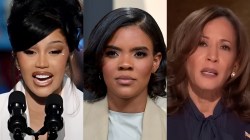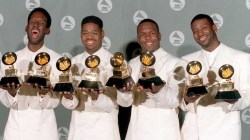With the advent of programs such as Apple Logic, Garage Band and Avid Pro Tools, artists such as GZA and Erykah Badu have talked candidly about the advantages of recording at their in-home studios. In exchange for filtering out the subpar emcees who keep trying to peddle their wares in the comment sections of HipHopDX and other sites, most major labels will gladly add the fee for recording in a top-notch studio to an artist’s advance. But, given the current sales climate, G-Unit’s Lloyd Banks sees a happy medium between both methods.
“They massage the artist to feel like the bigger the studio, the bigger the record,” Banks told BBC 1 Xtra’s Tim Westwood. “And that’s definitely not the case.”
Westwood went on to recount a time when then Def Jam CEO Lyor Cohen ordered a pair of high-end studio speakers and billed them to DMX’s recording session. Banks added that he dramatically cut the recording costs of HMF2 (The Hunger For More 2) by doing his initial work from his home studio. After recording the initial vocal tracks, Banks said he then takes the rough edits to a larger studio for mixing and mastering. The result was the gold-selling single “Beamer, Benz or Bentley” and a top 25 debut in the Hip Hop/R&B category for his album.
and a top 25 debut in the Hip Hop/R&B category for his album.
The return to the charts got the self-proclaimed Punch Line King praise from critics, including a nod for DX’s “Comeback of the Year.” But to hear Banks tell it, the preceived decline of G-Unit is part of Hip Hop’s natural evolutionary cycle.

AD LOADING...
“You can’t name one entity that has the same energy,” Banks explained. “From Ruff Ryders, Bad Boy, Cash Money, No Limit…they all had their moments. Honestly I can’t say we’ve seen an impact like G-Unit has had in the last decade. People wore bulletproof vests after we came. We touched people.”



